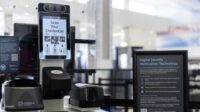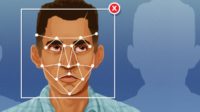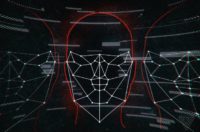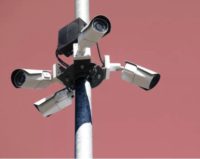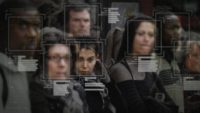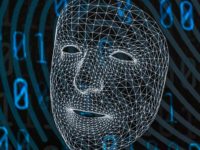Some police services in Canada are using facial recognition technology to help solve crimes, while other police forces say human rights and privacy concerns are holding them back from employing the powerful digital tools. It’s this uneven application of the technology — and the loose rules governing its use — that has legal and AI experts calling on the federal government to set national standards. “Until there’s a better handle on the risks involved with the use of this technology, there ought to be a moratorium or a range of…
Read MoreTag: Facial recognition
Clearview AI Aims To Put Almost Every Human In Facial Recognition Database | ARS Technica
The controversial facial recognition company Clearview AI reportedly told investors that it aims to collect 100 billion photos—supposedly enough to ensure that almost every human will be in its database. “Clearview AI is telling investors it is on track to have 100 billion facial photos in its database within a year, enough to ensure ‘almost everyone in the world will be identifiable,’ according to a financial presentation from December obtained by The Washington Post,” the Post reported today. There are an estimated 7.9 billion people on the planet. Read full…
Read MoreIRS Backtracks On Sketchy Facial Recognition Plan Following Public Outcry | Mashable
Activism, it turns out, still gets results. That’s the takeaway following a Monday morning announcement that the IRS intends to shift away from requiring Americans use a private facial-recognition service to verify their identities on the IRS website. The about face comes after sustained criticism from privacy experts, grassroots activists, and even elected officials. “This is big,” wrote Senator Ron Wyden Monday morning. “The IRS has notified my office it plans to transition away from using facial recognition verification, as I requested earlier today. While this transition may take time, the administration…
Read MoreThe IRS Will Soon Make You Use Facial Recognition To Access Your Taxes Online | The Verge
he Internal Revenue Service will require people who access and pay their taxes online to enroll in a third-party facial recognition company starting this summer (h/t Krebs on Security). Even those who have already registered on IRS.gov with a username and password will have to provide a government ID, a copy of a utility bill, and a selfie to ID.me, the Virginia-based identity verification company. You’ll take a video selfie with whatever webcam or mobile device you’re using to sign up, which seems likely to cause problems for people with…
Read MoreFederal Agencies Use Facial Recognition From Private Companies, But Almost Nobody Is Keeping Track | The Verge
A new report from the Government Accountability Office (GAO) has revealed near-total lack of accountability from federal agencies using facial recognition built by private companies, like Clearview AI. Of the 14 federal agencies that said they used privately built facial recognition for criminal investigations, only Immigration and Customs Enforcement was in the process of implementing a list of approved facial recognition vendors and a log sheet for the technology’s use. Read full story here: Federal Agencies Use Facial Recognition From Private Companies, But Almost Nobody Is Keeping Track | The…
Read MoreCivil Rights Groups Demand CBP Stops Facial Recognition Expansion At Airports | Engadget
The American Civil Liberties Union, Electronic Frontier Foundation and more than a dozen other civil rights groups have objected to Customs and Border Protection’s plan to expand use of facial recognition at border entry and exit points. The Department of Homeland Security proposed a rule change last month that would authorize CBP to photograph foreign nationals at any point of departure, including airports and seaports. Those captured images can be used to create faceprints. Read full story here: Civil Rights Groups Demand CBP Stops Facial Recognition Expansion At Airports | Engadget
Read MorePolice Are Using Facial Recognition For Minor Crimes Because They Can | CNET
Cities all across the US have passed bans on facial recognition, with variations in how strong the regulations are. Though Portland, Oregon, banned facial recognition from all government and commercial use, others are only limiting it from police use. Some cities, like Detroit, have enacted lighter measures, such as allowing facial recognition to be used only when investigating violent crimes, while police in New York have been able to use the technology for crimes like shoplifting. On Oct. 9, a New York judge decided in a package-theft case that facial…
Read MoreRCMP Acknowledges Using Facial Recognition Technology, But Won’t Say Where | CBC News
The RCMP has for the first time acknowledged using controversial facial recognition technology that has raised privacy concerns, saying it was used in the Mounties’ efforts to crack down on online child sexual abuse. The force said it has used the technology in 15 child exploitation investigations over the past four months, resulting in the identification and rescue of two children. The statement also mentioned that “a few units in the RCMP” are also using it to “enhance criminal investigations,” without providing detail about how widely and where. “We are…
Read MoreGoogle Knows What You Look Like. Here’s What It Means And How To Opt Out | CNET
Google’s Face Match technology isn’t everywhere yet, but it’s always looking. Find out what’s happening with your face data and what you can do to stop it. Google’s largest smart display, the Google Nest Hub Max, includes a controversial feature that’s always watching. Face Match, the name Google calls the technology, keeps a digital eye out for faces passing by. When it recognizes yours, it displays content just for you: photos, messages, appointments and even how long of a commute you can expect. Read full story here: Google Knows What You Look…
Read MoreThe Pentagon Can Now Identify People By Measuring Their HeartBeats | Digital Trends
As if facial recognition and digital fingerprinting weren’t scary enough, the Pentagon has reportedly developed a method for remotely identifying and tracking people through their heartbeat. Heartbeats are as unique and distinctive as fingerprints, but are distinct in that they can be read from a distance. And it’s this that the Pentagon is taking advantage of, according to a report in the MIT Technology Review. Developed to identify combatants in war zones, the idea is to listen in to those unique cardiac signatures using an infrared laser. Unlike other identification methods like…
Read More
